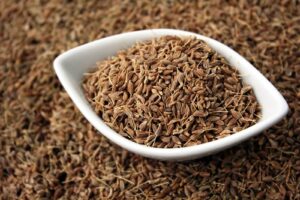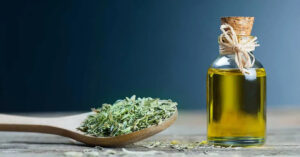Chia seeds have emerged as a superfood for the immense health benefits and energy boost that they provide. These tiny seeds, native to Mexico and Guatemala, have a rich history dating back thousands of years. Packed with essential nutrients, chia seeds offer a wide range of health benefits when incorporated into a balanced diet.

In this comprehensive guide, we will delve into the intriguing history of chia seeds, explore their various types and composition, examine their global production, discuss the incredible benefits they offer, provide recommendations for dosage and consumption, highlight possible side effects and precautions, and conclude with frequently asked questions.
The History and Origin of Chia Seeds
Chia seeds have been consumed for centuries by the ancient civilizations of Mesoamerica. The word “chia” is derived from the Mayan word for “strength,” reflecting the powerful properties attributed to these seeds. The Aztecs and Mayans considered chia seeds to be a staple part of their diet, valuing them for their sustainable energy and medicinal properties.
The Aztecs believed that chia seeds provided them with enhanced endurance and strength, making them popular among warriors and athletes. These seeds were also utilized as an offering during religious ceremonies due to their spiritual significance.
Different Types of Chia Seeds
Although there are various types of chia seeds available in the market today, the most common variety is the Salvia hispanica. This species is characterized by its small, oval-shaped seeds that are typically black or white in color. While both varieties offer similar health benefits, some individuals may have personal preferences based on taste or appearance.
Composition of Chia Seeds
Chia seeds are a nutritional powerhouse, packed with essential nutrients that make them an excellent addition to any diet. Here is a breakdown of the key components found in chia seeds:
| Nutrient | Amount (per tablespoon, 14g) | % Daily Value (DV) |
|---|---|---|
| Calories | 72 | 3% |
| Fat | 4.9g | 8% |
| * Saturated Fat | 0.4g | 2% |
| * Unsaturated Fat | 4.4g | 7% |
| * Omega-3 Fatty Acids | 0.5-1.5g | 1-3% |
| Carbohydrates | 12g | 4% |
| * Fiber | 10g | 40% |
| * Sugar | 4g | 9% |
| Protein | 3.6g | 7% |
| Vitamins & Minerals | ||
| * Vitamin B1 (Thiamine) | 8% DV | |
| * Vitamin B3 (Niacin) | 14% DV | |
| * Manganese | 31% DV | |
| * Phosphorus | 22% DV | |
| * Zinc | 18% DV | |
| * Magnesium | 7% DV |
Omega-3 Fatty Acids
Chia seeds are one of the richest plant-based sources of omega-3 fatty acids, which are crucial for heart health, brain function, and reducing inflammation in the body.
Fiber
Fiber is extremely important in keeping the digestive system healthy by encouraging bowel movement, because good health emerges from a healthy gut. Chia seeds are an excellent source of both soluble and insoluble fiber, aiding in digestion and promoting satiety.
Protein
Chia seeds are a great plant-based source of protein, making them an ideal choice for vegetarians and vegans. Protein is vital for muscle repair and growth, as well as supporting healthy hair, skin, and nails.
Antioxidants
Chia seeds contain antioxidants that help protect the body against free radicals, reducing the risk of chronic diseases such as heart disease and cancer.
Vitamins and Minerals
Chia seeds are rich in vitamins and minerals such as calcium, magnesium, phosphorus, and vitamin B complex. These nutrients contribute to overall health and wellbeing.
Global Production of Chia Seeds
In recent years, the demand for chia seeds has skyrocketed worldwide due to their nutritional value and health benefits. Mexico remains the largest producer of chia seeds, followed by countries like Argentina, Bolivia, and Peru. The favorable climate conditions in these regions contribute to the successful cultivation of chia plants.
The global production of chia seeds has seen a significant increase due to the rising demand from health-conscious consumers. This surge in popularity has led to increased cultivation in other countries as well, including Australia and the United States.
Health Benefits of Chia Seeds
The consumption of chia seeds can provide a myriad of health benefits. Some of the most notable health benefits are :
Weight Management
Chia seeds are high in fiber and protein, both of which contribute to increased satiety and reduced cravings. Including chia seeds in your diet can help support healthy weight management goals.
Heart Health
The omega-3 fatty acids found in chia seeds play a crucial role in maintaining heart health. They help reduce inflammation, lower blood pressure levels, and decrease the risk of heart disease.
Blood Sugar Regulation
Due to having a low glycemic index , they help with the blood sugar regulation. This is beneficial for individuals with diabetes or those looking to prevent blood sugar spikes.
Digestive Health
The high fiber content in chia seeds aids digestion by promoting regular bowel movements and preventing constipation. It also helps nourish beneficial gut bacteria for optimal digestive health.
Bone Health
Chia seeds are an excellent source of calcium, magnesium, and phosphorus, all of which are essential for maintaining strong bones and teeth. Consuming Chia Seeds on regular basis can help with the reduced bone density with old age and gives strong bones in all age groups.
Dosage and Ways to Consume Chia Seeds
When it comes to incorporating chia seeds into your diet, moderation is key. The recommended daily dosage is approximately 1-2 tablespoons (about 20-30 grams). It is important to start with smaller quantities and gradually increase intake to allow your body to adjust.
There are numerous ways to consume chia seeds, making it easy to incorporate them into your daily routine:
1. Chia Pudding
Chia pudding is one of the best ways to harper the benefits of chia seeds in a giving up on the good taste. Simply mix chia seeds with your choice of milk (dairy or plant-based) and let it sit overnight in the refrigerator. The result is a creamy and nutritious pudding that can be topped with fruits or nuts.
2. Smoothies
Add a tablespoon or two of chia seeds to your favorite smoothie recipe for an extra nutritional boost. The chia seeds will add thickness and provide additional fiber and protein.
3. Baked Goods
Chia seeds can be incorporated into various baked goods such as bread, muffins, or cookies. Simply sprinkle them into the batter or use them as an egg substitute by combining one tablespoon of chia seeds with three tablespoons of water per egg.
4. Salad Toppings
Chia Seeds can be sprinkled on salads for the added crunch and increasing the nutritional value of salads. They blend well with different types of dressings and can elevate the overall taste and texture of your salad.
How to Obtain Chia Seeds
Chia seeds can be obtained from just about anywhere as they are in huge demand given their popularity ,like your local grocery store , online retailers or any health store near you. When purchasing chia seeds, it is essential to opt for high-quality organic sources to ensure maximum nutritional benefits.
Before buying chia seeds online, read customer reviews and check for any certifications or quality standards mentioned by the seller. This will help ensure that you are purchasing genuine products that meet safety regulations.
Possible Side Effects and Precautions
While chia seeds offer numerous health benefits, it is important to be aware of potential side effects and take necessary precautions:
Allergies
Some individuals may be allergic to chia seeds. If you have a history of seed allergies or experience any adverse reactions after consuming chia seeds, discontinue use immediately and seek medical advice.
Digestive Issues
Consuming large amounts of chia seeds without adequate fluid intake may lead to digestive discomfort such as bloating or constipation. Ensure that you stay hydrated when consuming chia seeds to minimize these effects.
Medication Interactions
If you are taking any medications or have underlying medical conditions, consult with your healthcare provider before incorporating chia seeds into your diet. Chia seeds may interact with certain medications or interfere with medical conditions such as blood clotting disorders.
In conclusion, chia seeds are a nutritional powerhouse that offers a multitude of health benefits when incorporated into a balanced diet. From their ancient history to their global production and various consumption methods, chia seeds have captured the attention of health-conscious individuals worldwide. Remember to start with small quantities, gradually increase dosage, and stay hydrated when incorporating chia seeds into your diet.
As with any dietary change or supplement, it is important to listen to your body’s response and consult with a healthcare professional if you have any concerns or pre-existing medical conditions. Embrace the incredible power of chia seeds and unlock their potential for improved overall health and wellbeing!
Frequently Asked Questions
1. Are chia seeds suitable for individuals following gluten-free diets?
• Yes, chia seeds are naturally gluten-free and can be safely consumed by individuals following gluten-free diets.
2. Can I consume chia seeds during pregnancy or breastfeeding?
• Chia seeds are generally safe for pregnant and breastfeeding women when consumed in moderation. However, one must consult the doctor in such situations given its peculiarity.
3. What is the shelf life of chia seeds?
• Chia seeds have a long shelf life of 2 years provided they are stored properly away from direct sunlight in airtight containers in a dry place. When stored correctly, chia seeds can last up to two years.
4. Can I soak chia seeds before consuming them?
• Yes, soaking chia seeds before consumption can enhance their digestibility and nutrient absorption. You can soak them in water or your choice of liquid for about 15-20 minutes until they form a gel-like consistency.
5. Can I consume chia seeds if I have diabetes?
• Chia seeds have a low glycemic index and can be included as part of a balanced diet for individuals with diabetes. However, it is always advisable to consult with a healthcare professional for personalized dietary advice.
Reference : http://www.wikipedia.com







